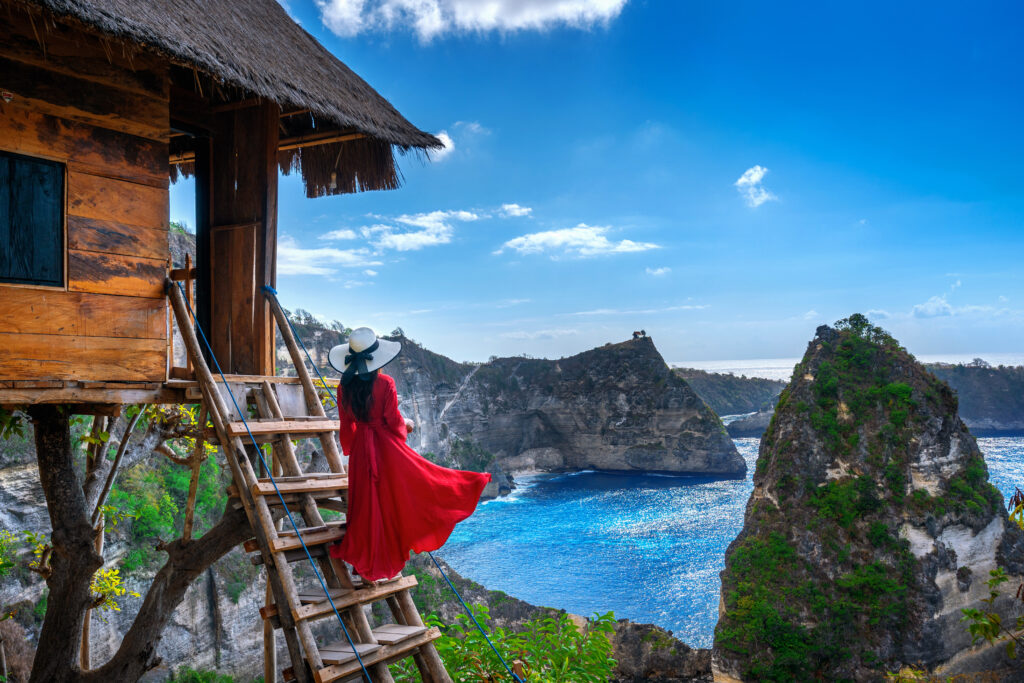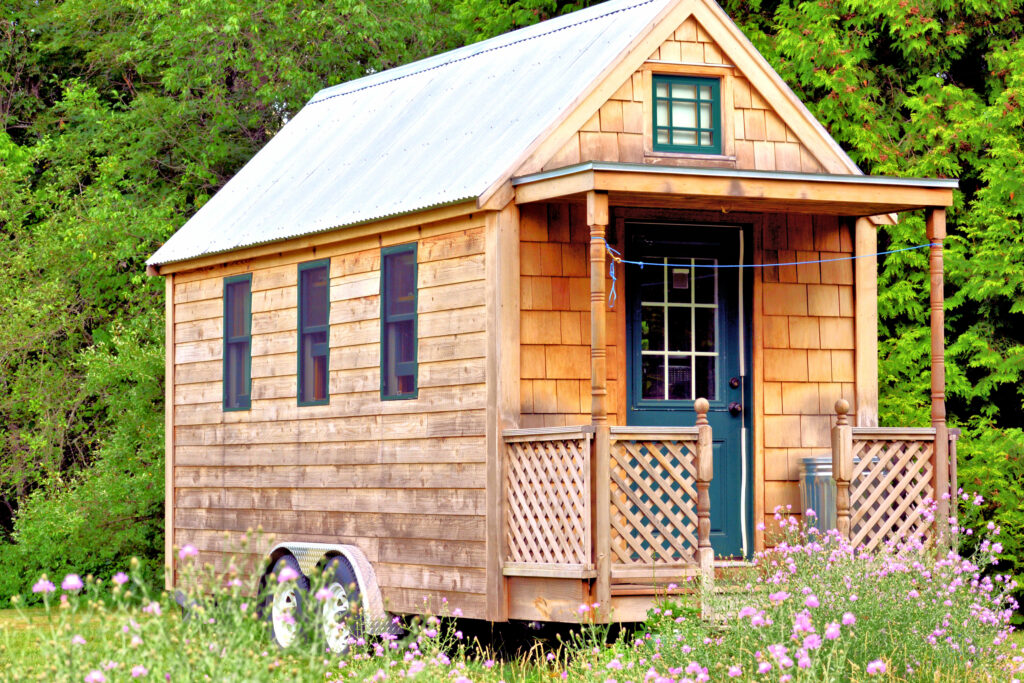
Why sleep in a run-of-the-mill hotel, when you can turn your vacation accommodation into a real experience in its own right? That's what alternative accommodations offer, original dwellings to welcome holidaymakers.
What is alternative accommodation?
Alternative accommodations are lodgings designed to welcome travelers in an unusual way. They stand in stark contrast to the norm, which is hotels and vacation apartments. Their aim is to turn your accommodation into an experience that's worth the trip itself, rather than just a place to spend the night.
Alternative accommodations can therefore vary greatly: there is no such thing as a standard, and that's the whole point! What alternative accommodations do have in common, however, is that they are original, often with a change of scenery, and most of the time, although not necessarily, far from the crowds.
Many of them are located in natural areas, offering visitors an unspoilt setting. This makes them ideal for eco-tourism.
To make sure that your alternative accommodation is committed to ecology and sustainable development, you can make sure that it is awarded an eco-label for tourist accommodation.
Alternative accommodations often invite you to bask in the warmth of your accommodation, rather than trying to visit everything in a frenzied way. They are therefore ideal allies for slow-travel enthusiasts, who can make the most of their unusual accommodation in a choice natural setting.
The different types of alternative accommodation

There are many different types of alternative accommodation, all of which have one thing in common: they look for alternatives to simple hotels or apartments. Most of them adapt to the environment in which they are set, so you'll see a very diverse range, depending on where you are.
- Yurts
Central Asia is the destination far from mass tourism that inspired this accommodation. Yurts are the traditional dwellings of the nomads of this region, particularly Mongolia. Highly insulating, they allow you to spend a few nights close to nature.
- The Tiny House
Initially a response to the real estate crisis that hit the United States in 2008, the Tiny House has since seduced the world of tourism. These miniature houses require little maintenance, little energy and can even be moved! Inside, everything is designed to make the most of limited space. Today, many service providers rent out their Tiny House, and some frequent travelers even treat themselves to one, so they can travel anywhere with their home.
- The farmhouse
The farm is an excellent and increasingly popular alternative form of accommodation, known asagritourism. More and more farmers are offering rooms for rent on their farms, as a way of making ends meet. You'll be able to sleep in close proximity to the animals, and farms also offer the advantage of an authentic lifestyle that truly reflects your destination. In wine-growing regions, for example, you can sleep in houses in the middle of vineyards in the homes of winemakers, and in Alpine regions, why not sleep in deer or fallow deer farms?
- Ecolodges
Ecolodges are accommodations that respect the environment and are directly embedded in nature. They can take many different forms, including some of the ones mentioned in this article, such as a yurt or a cabin, but must have the environment as a priority. They therefore take various measures to limit their ecological impact, such as energy optimization to reduce greenhouse gas emissions, the use of ecological cleaning products, or even products without any packaging to reduce the use of plastic.
- The caravan
Caravans are becoming increasingly popular as a means of spending unusual nights! These miniature travelling homes, once used by nomadic peoples, are now being converted to tourism. You can sleep in a brand-new roulotte, or in an authentic period roulotte, renovated to welcome you like a king.
- Earthship
Earthships are still rare, but very interesting. These homes are perfectly self-sufficient in energy, consuming very little. Earthships are built to take advantage of the natural conditions of their environment, so as to be self-sufficient. For example, they are often semi-buried in the ground, allowing the earth to act as a natural insulator. They are generally equipped with rainwater collectors, and built from sustainable materials.
- The tree house
The treehouse we dreamed of as children is now available to us, in an XXL, ultra-comfortable version! Treehouses are becoming very popular in Europe, and it's easy to see why: they offer the chance to take up residence in the middle of nature, in an unusual alternative accommodation that offers a prime vantage point for observing flora and fauna.
- The floating hut
While perched cabins allow you to observe birds and trees, floating cabins allow you to admire fish, frogs, reeds and the biodiversity of a pond or stream. It's the ideal alternative accommodation for nature lovers looking for peace and quiet.
- The converted van
Very popular in recent years, the converted van allows you to travel without worrying about where you're going to sleep at night. You can customize your own van to suit your image, or rent one ready to go. You can also opt for a camper van, a van or a converted bus, as you wish.
- Houseboats
Houseboats are quite common, both in towns with water ways and in the countryside. They allow you to sleep in unusual conditions, in a boat fitted out for your comfort, with the lapping of the water as music to lull you to sleep.
- The bubble
Bubbles are most often installed in the great outdoors, where they are at their most magical. Totally transparent, they allow you toobserve not only the environment in which they are installed, but also the sky. There's nothing like falling asleep admiring the Milky Way!
- Tipis
Tipis are the North American equivalent of the yurts mentioned earlier. Often much larger than you'd imagine, they offer the chance to sleep in unusual conditions, often in wild landscapes, and with all the necessary comforts.
- Sailboats
Sailboats allow you to roam the world, making your means of transport your home. They offer unusual accommodations that let you admire superb coastal and seascapes. But be warned: you need to have a certain knowledge of navigation to undertake such a trip!
- Hanging tents
There are different models of hanging tents, depending on your preferences. Most work like hammocks, suspended between two trees. Other models allow you to hang onto the side of a cliff, for mountaineering enthusiasts!
Discover our article Top 10 unusual accommodations in France!


